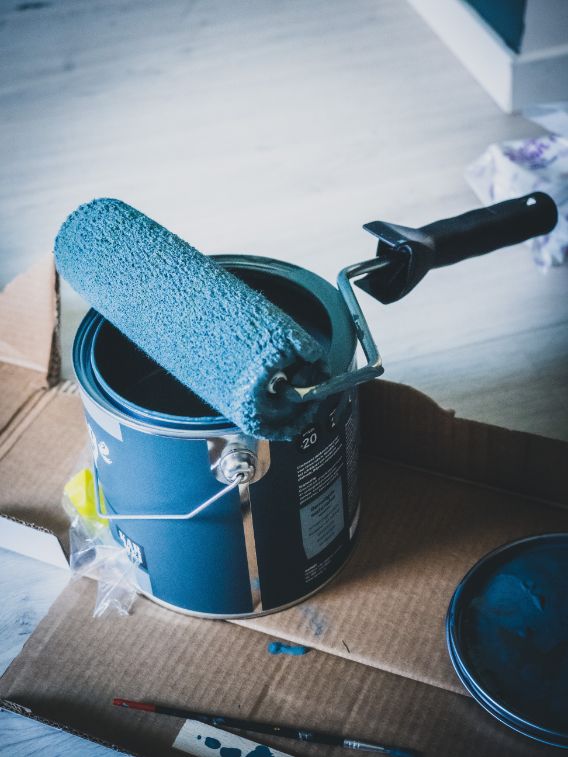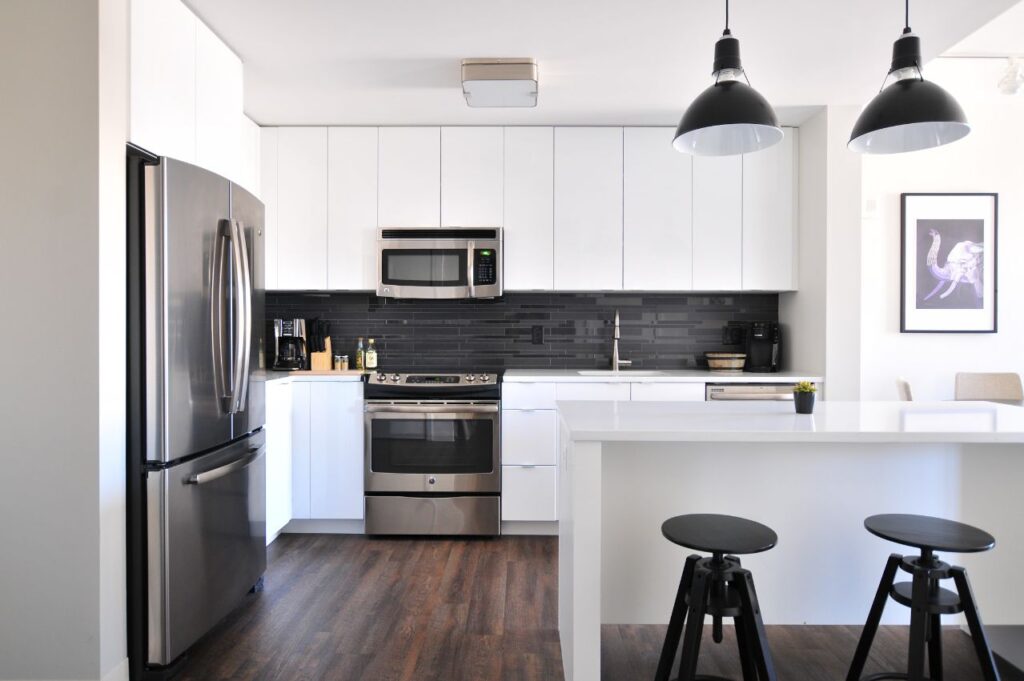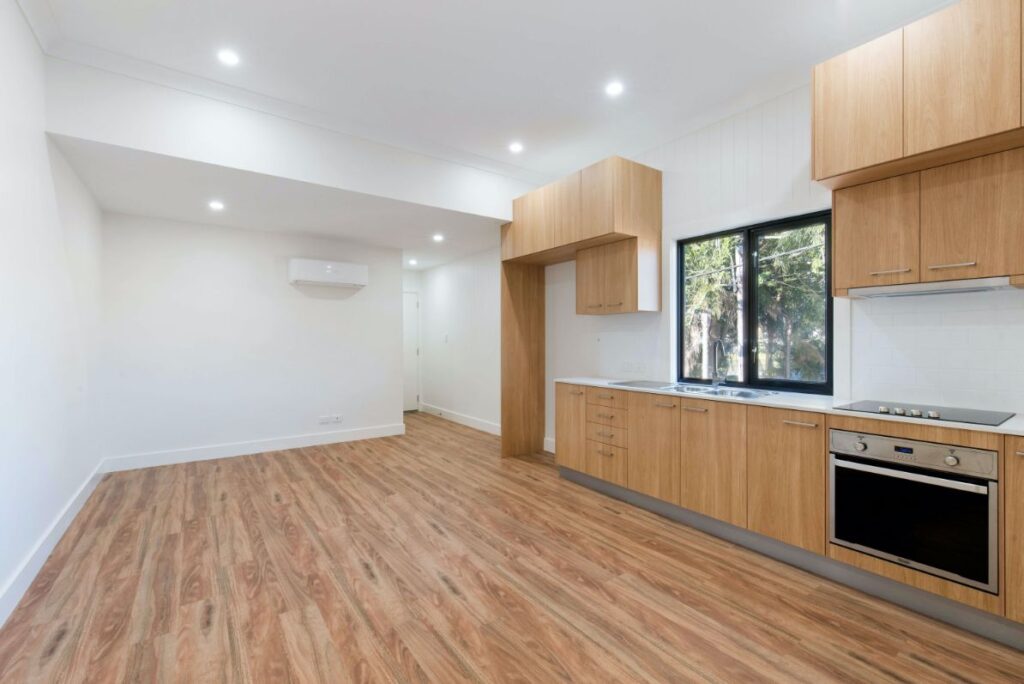It’s critical to prepare your house before listing it on the market so that it presents well to potential buyers. Decluttering interior spaces, improving curb appeal, and making important home repairs are common steps to take in getting a house ready to sell.
While you should do everything in your power to make your home as appealing to buyers as possible, there are some things that you don’t necessarily need to fix when selling a house. Please take the time to carefully read this article if you want to know what to not fix when selling a home.
How Do I Choose What Not To Fix When Selling A House?
Step 1: Consult A Real Estate Agent Before Making Repairs
There are a few steps that everyone should take, regardless of their market, to make a sale quickly. Make sure your house has the best possible curb appeal by keeping it tidy, clearing out the clutter, and staging it to some extent.
A knowledgeable local real estate agent should be familiar with the local real estate market and have a good idea of the repairs that need to be made to bring your house up to par with nearby sales at the price you want.
To find out how much other homes are selling for, ask your agent for comparative market analysis (CMA). You might not need to make any repairs before listing if everything in your CMA that sells for the price you want is in a condition that matches yours.
Make some estimates to see your costs in money and time to get your home to the sale price you need if everything on your CMA is substantially more updated. The cost of updates often won’t be recouped in the sale.

Consider the advice of your agent on repairs with a grain of salt. Real estate brokers are compensated with commissions based on the price of your home.
A bad investment for you but a significant increase in commission for your Realtor if several upgrades cost you $200,000 and drive up the sale price by $100,000. Make sure the agent you are working with has your best interests in mind.
Step 2: Determine If You Will Recoup Your Cost
Will upgrades, improvements, or repairs increase value and yield a positive return on investment? Your location and the market will determine this.
However, generally speaking, kitchen renovations yield the highest return (between 50% and 75%), followed by flooring. You might get more value and a safer return on your investment from lower-cost upgrades like painting and landscaping.
Sometimes a major renovation makes sense and sometimes not. The market and your neighborhood are the only factors that matter. An expert real estate agent can assess the market value of your home, run comparable home sales data, and determine the ROI to determine whether updating your home is financially advantageous.
As a general rule, avoid remodeling your kitchen or primary bathroom for more than 10% or 5% of the value of your home, respectively.
Step 3: Identify And Rule Out Vanity Fixes
Homeowners who are suddenly motivated to sell their house may take out their worn-out to-do list. Keep in mind that your house doesn’t need to be immaculate and that not every repair will be cost-effective.
“I Always Meant To Fix It”
Being viewed as a slacker is something that nobody wants. Every homeowner, however, has a wish list of upgrades or repairs that were never completed due to financial constraints and time constraints.
You might experience the Zeigarnik Effect, which is the persistent sense that something is still unfinished if you move before you cross those things off your list. But keep in mind that the new buyer might have a different to-do list than you do, and concentrate your efforts on only doing the work that will bring you the best ROI.
“I Don’t Want Buyers To See My House Like This”
Our homes are a very intimate reflection of who we are. Opening up our homes to strangers for showings can make us uncomfortable or anxious. Nobody likes to be judged, but that’s exactly what potential buyers are doing.
Of course, you want your house to look beautiful. Of course, you’re worried about how uninvited guests will perceive your sense of style, taste, and cleanliness in your home. Be encouraged by the fact that a buyer’s attention to the small details is frequently an indication of a serious interest in buying your house.
“Fixes And Upgrades Will Detract From Unfixable Property Flaws”
There are times when no amount of improvements or repairs will be able to draw buyers’ attention away from significant flaws in the property that is certain to lower the sale price. There is nothing you can do to conceal a powerline or hide a busy street, let’s face it. Your yard’s size won’t increase by itself.
Neither is the size of your space. The loss brought on by an irreparable property flaw, however, is what some homeowners believe will be made up for by presenting an updated, upgraded, and fully repaired home.
What Not To Fix When Selling A House?
Let’s look at some typical home repairs that you can skip before you visit Home Depot or hire a contractor.
Partial Fixes
If you’re going to start a renovation, especially in the areas of your bathrooms and kitchens, go big or go home. Partially updating dated areas of your home, such as installing new countertops while keeping the old cabinets, doesn’t look good and frequently hurts your chances of selling your house.

Avoid including the cost of a partial renovation in your sale price unless you’re going to give the buyer a fully updated room to choose from and instead let them complete a round of full updates. Some buyers would rather purchase a genuine fixer-upper because they enjoy doing renovations.
Not to mention, if you forego renovations, you won’t need to worry about permits.
Cosmetic Damage
No buyer assumes that when they arrive at the house, it will be spotless inside and out. They do anticipate being able to purchase a home free of significant structural flaws or upsetting issues like outdated electrical or plumbing systems.
Concentrate your efforts on enhancing those areas because buyers will pass over minor cosmetic issues like scratched floors and chipped paint but walk away from a home in need of significant and urgent repairs.
Minor Electrical Issues
Don’t worry about small electrical problems, to speak of them. An electrical socket that shakes or a light switch that doesn’t work will not deter potential customers.
Once more, concentrate your repair efforts on significant electrical problems that are unsafe or difficult for the buyers to fix. Minor electrical problems frequently go unreported in inspection reports and are unlikely to be discovered by the buyer.
Driveway And Walkway Cracks
Don’t give in to the pressure to repair each and every flaw. As the first thing, a potential buyer will notice when they come to your open house, it makes sense to invest in your home’s curb appeal. Hairline cracks, however, that don’t compromise safety are probably not going to cause buyers to pay attention.
Repainting In Trendy Colors
Right now, if you visit any website for homes for sale, you’ll see that every house has a brand-new coat of paint that is either gray or white in an effort to make the house appear more contemporary and fashionable.
Trendy paint colors won’t fool buyers, particularly if the rest of the house needs work. Your prospective buyers might not even like the current color trend, which makes a fresh coat of paint in the color of their choice an inexpensive fix that most buyers are willing to accept.
If your house really does need a new coat of paint, stick with neutral hues and stay away from fashions that aren’t universally liked. It’s not necessary to paint your house a trendy color just because.
Renovating More Than Your Neighbors Do

You should make an effort to keep up with the Joneses when it comes to selling your home, but there’s no need to outdo them. You don’t want to be the owner of the most luxurious home on the street, despite the cliché that goes with it.
Even if you decide to spend a lot of money on expensive upgrades that aren’t common in your neighborhood, like extensive landscaping or opulent interior features like a home theater, you probably won’t get enough of a return to make them financially viable.
Removable Items
Although there’s a chance they’ll want to purchase some of that furniture from you, buyers can look past dated window hardware, furniture, and artwork. It quickly becomes expensive to swap out removable objects for more contemporary ones.
New versions won’t have much of an impact on how much buyers think your home is worth because those features are detachable.
You should simply get rid of all removable items rather than replace them. Donating anything you don’t need any longer is a great way to declutter your home and start planning your upcoming move. Your open houses will be more effective and
Old Appliances
Older appliances don’t need to be replaced unless they are seriously broken or just an eyesore, similar to how furniture and decor aren’t always replaced. If you do decide that you need to replace your appliances before you move, you can save money by purchasing used appliances that are newer and more attractive.
Modern, brand-new appliances aren’t necessary when you can find gently used ones on Craigslist and Facebook Marketplace for a much lower cost. In any case, the buyers are not anticipating brand-new appliances.
What To Fix When Selling A House?
There are some fixes you’ll want to cross off your list, but do your research before spending a lot of money. Upton advises focusing on the things that customers notice the most frequently.
Buyers can see the walls, floors, kitchens, and bathrooms. They emphasize elegant main living areas. You ought, to begin with, that.
Basic deterioration in these places must be addressed. First and foremost, according to Upton, new paint is essential; in fact, she advises against even listing a home without first repainting the interiors. It’s also crucial to update or refinish hardwood flooring.
In fact, wood-floor fixes are one of the few remodeling projects that actually recoup more than their costs, according to the National Association of Realtors’ “2022 Impact Statement on Remodeling.” When compared to new wood flooring installation, hardwood floor refinishing offers a 147 percent return on investment.
In order to give potential buyers confidence in the home’s condition and suitability for habitation, updating old or broken heating, venting, and air conditioning (HVAC) systems can also be a good idea, despite being a less glamorous fix. If the weather is warm, they may not be able to see it, but they can certainly feel it.
In any summer home sale, HVAC repairs come in first. Buyers and buyer’s agents will notice if your air conditioning is nearing the end of its lifespan and the thermostat cannot maintain the desired temperature.
Remember to also clean up the shrubs and other foliage around the house; Upton emphasizes the importance of landscaping.
The Bottom Line
Putting your house on the market might not actually require any repairs. The most crucial thing is to make sure that you clean, declutter, and improve the curb appeal of your home. To maximize the sale of your home, enlist the aid of an experienced real estate agent when creating your own fix-and-don’t-fix lists.





